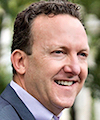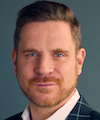 |
| Tim Bird |
This month marks the 50th anniversary of the Stonewall Uprising, widely regarded around the world as a seminal event in the gay rights movement. LGBTQ Pride was not born out of a need to celebrate our being gay, but our right to exist without persecution. Not that long ago, women and men were regularly fired or not hired because of their sexuality. For myself and so many others, Stonewall changed the trajectory of my personal and professional future and that of our industry.
A 1969 picture of me shows a precocious, expressive boy excited for the future. My parents saw something else in me that was only ever spoken of in code. I could be anything, but NOT a hairdresser. This was code, of course, for queer. While didn’t pursue a hairdressing career (an honorable profession), I’ve been fortunate to be a part of a thriving communications industry with a unique capability to influence and inspire profound social change. My life depended on it.
The LGBTQ community that I became a part of changed the course of a global public health crisis and saved countless millions of lives. I came out in the 1980s, at the height of the AIDS epidemic. While finishing college and preparing for a career, gay men like me were dying by the tens of thousands as our governments and society largely stood by. The stigma of the epidemic amplified long-standing discrimination and homophobia, including in the workplace.
Increasingly, our clients, companies and leaders understand that people are our most important asset. But we have a long way to go before every LGBTQ person feels supported by their employer.
Our voices give us power. As agency leader, I have an opportunity—and an obligation—to be proudly and visibly out in the workplace. Since its very beginnings, the fight for equality has belonged to brave, marginalized people whose fierce commitment compels them to protest, march, volunteer, vote and donate. When we speak up about LGBTQ equality, we are creating change. This is particularly important in the workplace, where visible and vocal LGBTQ role models and allies in leadership positions can help ensure a welcoming environment and champion a diverse workforce.
While our clients may be way ahead of us advancing diversity and inclusion, as a society, we have a long way to go before every LGBTQ person feels supported by their employer. Many LGBTQ staff, and trans people in particular, still face discrimination, exclusion, barriers and even bullying at work. In the U.K., 35% of LGBTQ employees are still in the closet, and this number goes up to 55% in the U.S. Data shows that many people don’t feel comfortable enough to disclose their identity at work, and those who do are often subject to varying degrees of discrimination.
I recently visited the Stonewall Inn, now a National Monument, and reflected on how those events changed my life: from the little boy who couldn’t be a hairdresser to the out-and-proud global executive that I am today. The greatest lesson I’ve learned along the way is the need to repay that debt forward by being a visible role model, building an inclusive workplace, and fostering the careers of diverse and talented communicators.
Together, we have come so far. But there’s much more to be done. Our industry’s capability to influence matters. Pride still matters. Being out and proud, at home and in the office, will always matter.
***
Timothy Bird is global CEO of Health Unlimited, a global health consultancy and communications agency with regional hubs in New York City and London. It is part of the Unlimited Group.


 LGBTQ+ representation in communications is getting better, but many brands are still lagging when it comes to making a year-round commitment, according to a report from WPP Unite.
LGBTQ+ representation in communications is getting better, but many brands are still lagging when it comes to making a year-round commitment, according to a report from WPP Unite. To effectively connect with the LGBTQ+ community, agencies need to build cultures that create equity-minded teams and bring that mindset to the work they deliver for clients.
To effectively connect with the LGBTQ+ community, agencies need to build cultures that create equity-minded teams and bring that mindset to the work they deliver for clients.  Being your authentic self might come with some risks, but it can also spur careers and brands to greater success.
Being your authentic self might come with some risks, but it can also spur careers and brands to greater success. An ever-larger number of companies and organizations are using Pride Month to proclaim how LGBTQ-friendly or supportive they are—but how can ethical companies or organizations really show their commitment to meeting the needs and expectations of LGBTQ audiences?
An ever-larger number of companies and organizations are using Pride Month to proclaim how LGBTQ-friendly or supportive they are—but how can ethical companies or organizations really show their commitment to meeting the needs and expectations of LGBTQ audiences? There are ways that we as communicators can work to prevent backsliding on the deeply important issue of LGBTQ+ rights. Here are five of them.
There are ways that we as communicators can work to prevent backsliding on the deeply important issue of LGBTQ+ rights. Here are five of them.


 Have a comment? Send it to
Have a comment? Send it to 
No comments have been submitted for this story yet.